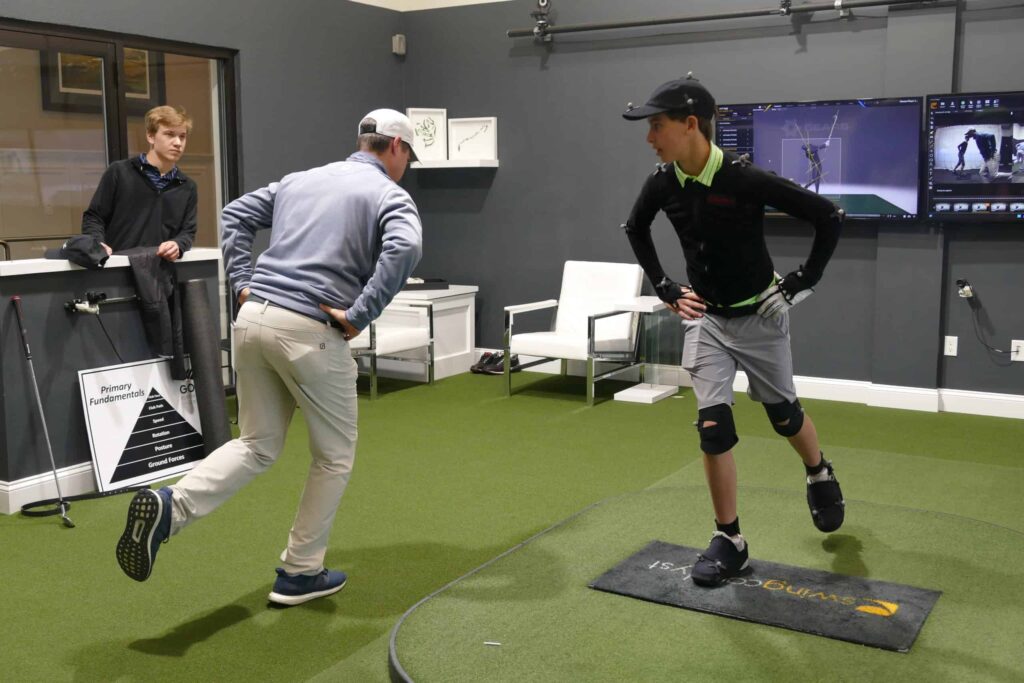Choosing the right irons is one of the most important decisions a golfer can make. Unlike drivers or fairway woods that emphasize distance, irons are built with a different purpose: control. They help golfers hit precise yardages, control ball flight, and position themselves for scoring opportunities. Whether you’re playing from the fairway, rough, or even in recovery situations, the right set of irons can elevate consistency and lower scores.
Among the many decisions golfers face when selecting irons, one of the most common is forged vs. cast irons. These two manufacturing methods produce clubs with different characteristics, but before we dive into that, it’s worth taking a step back to talk about what irons are truly designed to do.
The Purpose of Irons: Control, Distance, and Direction
At their core, irons are about accuracy and distance control. When you’re standing 150 yards out in the fairway, what shot are you hitting? An iron shot.
Here are a few key reasons why control with irons matters so much:
- Distance Gapping: Every iron in your bag should carry a specific yardage with consistency. A properly fit iron set ensures you have even distance gaps between clubs, eliminating guesswork and helping you dial in your approach shots.
- Direction and Shot Shaping: Unlike woods, irons give golfers more ability to control trajectory and curve. Need to hit a low punch under the wind? Or shape a gentle fade around a tree? Irons are designed to provide that versatility.
- Playability from Various Lies: Golf isn’t played off perfect lies every time. Irons are built to handle shots out of the fairway, rough, sand, or even tight turf. Their designs give golfers options for escaping tricky situations while still maintaining accuracy.
In short, irons are not just about getting the ball in the air — they’re about controlling distance, direction, and trajectory in ways that maximize scoring opportunities.
Forged Irons
How They’re Made
Forged irons are crafted from a single piece of metal, usually carbon steel, which is heated and then pounded or pressed into shape. This forging process creates a dense, compact grain structure in the metal.
What That Means for Performance
The result is a clubhead that delivers an unmistakably soft, solid feel at impact. Many skilled golfers describe forged irons as “buttery,” and that sensation is one of the biggest reasons players choose them. Because of the compact grain structure, forged irons provide more feedback, helping golfers instantly recognize where they struck the ball on the face.
Forged irons are also known for their workability. Skilled players can shape shots with greater ease — hitting draws, fades, and controlled trajectories as needed.
Considerations
Forged irons are generally less forgiving than their cast counterparts. They tend to reward well-struck shots but also make mishits more noticeable. They’re often preferred by low-handicap players who value precision and consistency over built-in forgiveness. Because forged irons are made from softer metals, they may also show wear more quickly and require occasional maintenance — though for many golfers, this trade-off is worth the feel they provide.
Popular Forged Models
- Miura Irons KM 700, TC 202, MC 502
- Titleist T100, T150
- Mizuno Pro Series 241, 243
- Callaway Apex Pro
- TaylorMade P7MB,P7MC
- Ping Blueprint S, T
Cast Irons
How They’re Made
Cast irons are manufactured by pouring molten metal into a mold, allowing engineers to create more intricate shapes and designs.
What That Means for Performance
The casting process makes it possible to add features like cavity backs, perimeter weighting, and undercut cavities, which optimize forgiveness, stability, and launch. As a result, cast irons typically have a larger sweet spot and provide more consistent results on off-center hits.
For many golfers, especially mid-to-high handicaps, this forgiveness translates into straighter, more predictable shots, even when contact isn’t perfect
Considerations
While cast irons may not have the same “soft” feel as forged irons, the trade-off is significant forgiveness, durability, and playability. They’re ideal for golfers who want help with consistency, higher launch, and longer carry distances.
Popular Cast Models
- Ping G430, i530
- TaylorMade P790, Qi Irons
- Callaway Paradym Ai Smoke
- Cobra Darkspeed Irons
- Titleist T350
Forged vs. Cast: Which Should You Choose?
The choice often comes down to what you value most in your game:
- Forged irons are typically favored by players or purists who want maximum feel, workability, and precision.
- Cast irons are often the go-to for golfers who prioritize forgiveness, consistency, and ease of play.
That said, many players are discovering the benefits of combo sets — for example, using forged short irons for precision and feel on scoring shots, while relying on cast long irons for forgiveness and distance.
The Bigger Picture: Fit Matters More Than Forged vs. Cast
While the differences between forged and cast irons are real, the truth is that the right fit matters more than the manufacturing process. A well-fit set of irons ensures that loft, lie angle, shaft, grip, and clubhead design all work together to maximize distance control, direction, and consistency.
At The Golf Performance Center Custom Clubs, we specialize in helping golfers find the perfect match. Using advanced technology like GEARS and Foresight, we analyze every detail of your swing and ball flight. This data-driven approach ensures your irons — whether forged, cast, or a combination — are tailored to your unique playing style and goals.
Final Thoughts
Irons are the true scoring clubs in your bag, built to provide control, accuracy, and consistency where it matters most. Forged and cast irons each offer unique advantages, and the right choice comes down to your skill level, preferences, and performance needs.
The bottom line? Don’t just choose based on the label “forged” or “cast.” Instead, focus on how the clubs help you hit the right distances, control your ball flight, and build confidence with every swing.
Your best next step is to test both styles at Custom Clubs. We’ll help you explore all the options from top vendors like Callaway, Titleist, Mizuno, Miura, TaylorMade, Ping, Epon and Srixon, ensuring you walk away with irons that truly fit your game.


